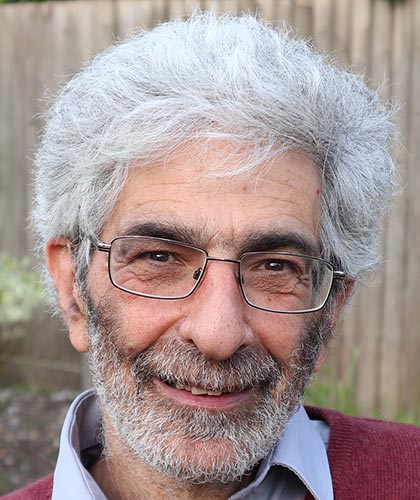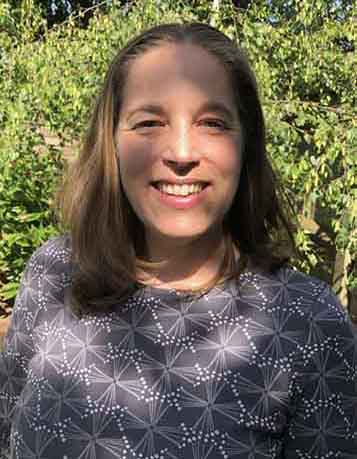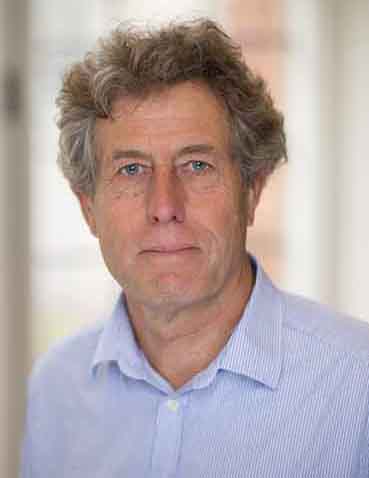

Awards and Prizes for distinguished work and careers
The Mason Gold Medal was funded by Sir John Mason as an award for Fellows of the Society and ranks alongside The Symons Gold Medal as the premier award of the Society and is bestowed in alternate years to the Symons Medal.
The FitzRoy Prize is awarded for distinguished work in applications of meteorology or related sciences, especially if published in Society journals.
Honorary Fellowship is a lifetime accolade made to a select group of distinguished individuals whose careers in meteorology (or a related science) or as a public figure renders them a leader and role model within the meteorological community and an inspiration to future generations.
2019 Awards & Prizes
- Distinguished work and careers
- Outstanding contributions published in the Society’s journals
- Original research, innovation and significant contribution to meteorology and its application
- Original contributions of early-career scientists
- Outstanding contribution in public outreach and communication
- Outstanding contribution or service to the Society or the Society’s journal Weather
- Journal Editor's Awards
Resources
Mason Gold Medal
Professor Keith Shine

Professor Keith Shine is an outstanding climate scientist who has achieved many influential contributions through his research and other influential activities. His rigorous, wide-ranging and substantial body of research has led to advances in the understanding of the fundamental processes that drive the variability and predictability of Earth’s weather and climate.
Professor Shine’s research expertise is in the transfer of radiative energy up and down through the atmosphere. The incoming solar radiation drives the Earth’s weather and climate, but the crucial details depend on how much solar radiation is absorbed or reflected. His work also illuminates the impact of greenhouse gases that are mostly transparent to solar radiation but impede the loss of thermal radiation to space, thereby leading to warming. This includes ground-breaking work on water vapour, the most prominent greenhouse gas, and the most complex in its behaviour. His research has also been important in characterising the effects of aerosol particles and clouds, the impacts of aviation on climate, as well as quantifying stratospheric temperature trends and ozone depletion.
Professor Shine’s research has targeted pressing societal issues, particularly climate change. His close involvement with the Intergovernmental Panel on Climate Change (IPCC) Scientific Assessments, starting with the first of these in 1990, also included a share in the Nobel Peace prize for his contributions to the 2007 IPCC report. He is one of the world leaders in gauging the impacts of the emissions of other greenhouse gases relative to that of carbon dioxide, a topic that is crucial for international climate agreements. His research continues to provide valuable, policy-relevant contributions, including recently published articles on communicating risk to aviation from volcanic ash dosage, optimising flight routes and improving metrics to inform pathways for mitigating human-caused climate change. Professor Shine’s advice on the greenhouse impact of replacements for the ozone depleting chlorofluorocarbons (CFCs) has been sought by a number of companies, as has his expertise in the impact of aviation on climate.
Professor Shine’s contributions have been widely recognised, including by his appointment as a Regius Professor and his election as Fellow of the Royal Society. Through his Royal Society work, public lectures and media interviews, Professor Shine is a significant voice informing the public understanding of climate change. His tireless and selfless support of other scientists has earned him unrivalled respect and several prestigious awards. He is inspiring and at the same time conscientious in his teaching activities, and is an exemplary mentor to other scientists, with many of his numerous PhD students now senior climate scientists.
For his substantial contributions to the fundamental understanding of the climate system and the benefit to society through this and his contributions to teaching and public engagement, Professor Keith Shine is a thoroughly deserving recipient of the Mason Gold Medal.
|
|---|
FitzRoy Prize
Dr Helen Dacre

The serious impact of the 2010 Eyjafjallajökull volcanic eruption on civil aviation prompted a major wake-up call to both regulatory authorities and the scientific community. The eruption exposed weaknesses in the understanding of volcanic ash transport within the atmosphere and exposed the blunt nature of the tools used for managing aviation in the vicinity of volcanic ash clouds. Building on her expertise in extratropical weather systems, Dr Helen Dacre has played a major and sustained role in leading research at the University of Reading, which has assessed and improved techniques for forecasting the dispersion of volcanic ash clouds.
This has included assessment of model simulations of volcanic ash clouds using a variety of measurement platforms, including ground-based lidar, airborne lidar and in-situ measurements. This has led to a much improved quantification of the fraction of emitted volcanic ash that survives near-source fall-out and the fraction that remains within the ash cloud, as well as an improved understanding of the atmospheric processes that determine the vertical extent of ash layers away from the immediate location of the eruption.
Dr Dacre has also recognised that the complexity of information available from ensemble-based forecasting systems can present a barrier to their effective use by the aviation stakeholder community. In co-operation with this community, Dr Dacre has led efforts to develop and test methods for visualising complex information, including the representation of uncertainties, and to develop techniques to identify situations in which the ensemble-mean is not representative of individual ensemble members. This has led to improved decision-making tools, suitable for the short-lead times necessary for flight management.
Much of Dr Dacre’s work in this area has been in close collaboration with the London Volcanic Ash Advisory Centre (VAAC) at the Met Office. It has led to an improved representation of volcanic ash in the Met Office Numerical Atmospheric-dispersion Modelling Environment (NAME) model. This has enabled a more nuanced and flexible approach to assessing the risk to aviation. Dr Dacre has also collaborated with wider stakeholders in the aviation industry, exploiting improved understanding of the way volcanic ash causes damage to aircraft engines, to propose and demonstrate an improved ensemble modelling approach. She has recently extended the exploitation of ensemble forecast data to the problem of Chilean wildfire prediction.
|
|---|
Honorary Fellow
Professor Tim Palmer

Professor Timothy Palmer is a unique combination of theoretical physicist and meteorologist. During the last three decades he has led a revolution in the fields of weather and climate prediction by establishing a physical basis for understanding nonlinear error growth in weather and climate models and for developing practical ways of estimating flow-dependent predictability. He has challenged old ideas and has changed the way that weather and climate are viewed both by the public, by the weather and climate prediction community, and by scientists in other disciplines.
Professor Palmer’s research is responsible for placing weather and climate prediction on a trajectory that promises both better forecasts at longer time horizons and the enablement of useful and usable assessments of environmental risk. If it were not for Professor Palmer’s influence, the field of prediction would perhaps be a least decade behind, perhaps a generation, from where we now find ourselves. Indeed, it is possible that without his guidance the science of prediction may have followed a completely different and less successful trajectory. The techniques he has championed are now standard in operational weather and climate prediction around the world, and are central for reliable decision making for many commercial and humanitarian applications. More recent research has been focused on the development of stochastic parametrizations in weather and climate simulators, and the application of inexact computing techniques for developing ultra-high resolution climate models.
|
|---|

